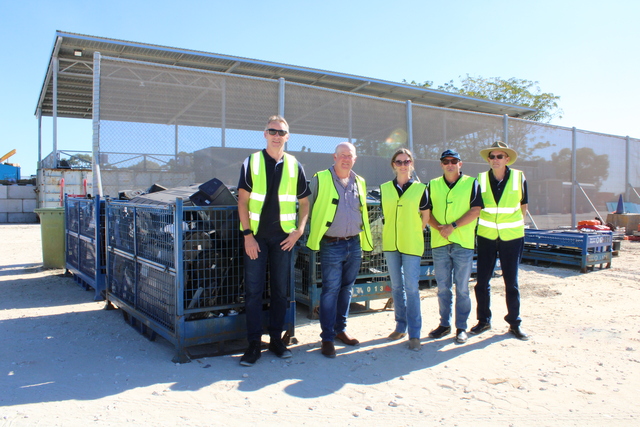by Richard Perin *
There’s quite a buzz around OH&S training at present. Traditionally, learning is equated with performance improvement as an aim and instruction as a method, it lays responsibility with the employer, and it envisages learning as an instrument of reform.
To improve performance in OH&S, there are models that an organisation can follow, but ultimately, and to quote others, ‘you need to do it your way’. Your way relates to the structures and dynamics within your workplace.
These are too often ignored, not discussed, or treated as ‘transparent elephants’ occupying the workspace but never acknowledged. Such thoughts bring us back to an exploration of power, trust and democracy within both learning and other collaborative projects. Obviously then, a key challenge for people working in Learning and Development is how to get those transformative breakthroughs that get us closer to our OH&S goals.
Fundamental to being able to achieve OH&S goals is a commitment at all levels of any organisation to achieving a sufficiently democratic workplace where ideas with merit, and feelings and concerns can be enunciated with power from all levels and evolve into practice.
In other words, a place where good ideas are taken up, and where people are not singled out for airing issues. For this to happen, the empowerment of employees is critical and Campbelltown City Council is fully committed to this.
Two key initiatives for empowering employees include the introduction of an Educational Assistance Policy and a Workplace English Language and Literacy Program (WELL).
Education assistance
In the past, Campbelltown City Council Study Leave Policy provided assistance to staff seeking additional tertiary qualifications. Following the Employee Opinion Survey, it was decided to expand the support to staff by providing educational assistance. The new policy provides that a contribution to a maximum of $500 may now be made available for courses deemed suitable for developing the skill levels of an employee within their existing position and future career aspirations.
Workplace English Language and Literacy Program (WELL)
From the beginning of 2004, Campbelltown City Council now has a TAFE NSW teacher on site at Council one day a week to help employees with training in Certificate 3 In Local Government – Operations. The training will be held in working hours and will include sessions on;
- working in Local Government
- workplace change
- intercultural skills
- writing workplace documents
- workplace communication.
Both theses initiatives seek to give individuals and teams the opportunity to gain skills which will encourage them to accept responsibility and authority for their actions. Both focus on individual reflection and empowerment for collective action, and on transforming existing structures and power dynamics.
The Education Assistance policy attempts to counter the current trend of shifting costs of training from employer back to the individual workers, especially for those engaged in non standard work, such as part time or casual employees. People who could not previously afford to study now have a better chance.
The WELL program acts as a ‘second chance’ strategy for employees, providing greater flexibility in the delivery of post school literacy and numeracy programs. It ensures this training is available as part of an integrated workplace learning arrangement rather than being offered in an environment that reproduces the structures and pedagogy of traditional classroom learning.
The future
Of course, while these key initiatives are essential to achieving a meaningful cultural transformation and, ultimately, improve Campbelltown City Council’s ability to meet its OH&S responsibilities, other learning and development initiatives are also required. It is expected that future initiatives will focus on cross-team working, teamworking, management development, and shared beliefs, values, goals and objectives.
Even with these initiatives, there remains a significant lack of discourse about the underlying skills and threshold foundational attributes considered to be essential in the area of OH&S. To date, there is no clear benchmark of educational attainment – training support or employment assistance that government feels it needs to provide to enable people to understand their OH&S roles and responsibilities and to work safely.
A recommendation for future action might include a legislated commitment guaranteeing a foundation level of education, training and employment assistance. Until then, the best you can do is ‘to do it your way’.
For further information contact Richard Perin on (02) 4645 4462.
* Richard Perin is Learning and Development Officer at Campbelltown City Council







